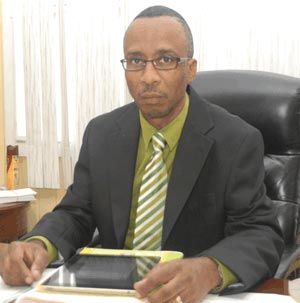THIS is roughly the fifth year I’ve been writing articles, five years of what I hope to be useful anecdotes and analysis, useful commentary on some critical issues that I’ve seen affecting this society and the wider world. Over the years, some of these have stood out for me, some that I feel more strongly about than most, usually the subject of considerable dedication on my part. This week I want to focus on three of those topics in capsule.
Looking After Our Elderly

This is something I’ve written about in several articles, and from different perspectives, although my primary focus has been on health and social services. It is my belief that a society’s primary social obligations should be to two broad categories of people, the very young and the very old.
When it comes to the former, those obligations are mainly to provide them with a sound education foundation and to ensure that they are afforded the best healthcare for their adequate social integration. When it comes to the elderly, the obligations are both similar and converse. The similarity is that we need to ensure that the elderly are afforded the best healthcare services we can afford.
The converse is two-fold. With regard to education, what I’ve suggested in previous articles is that we need to find innovative ways of tapping into the tremendous knowledge base that the post-retirement demographic possesses, both in terms of technical knowledge and institutional memory.
When it comes to the social structure, whereas I think that the social contract should be designed to integrate young people to be part of it, I believe that society should conform itself to the particularly needs of the elderly, both concrete and abstract. Towards this end, I have suggested the encouragement of special retirement communities with centralised social and health care services for our older citizens. I have also suggested the establishment of special one-stop-shop facilities where the elderly can access healthcare services, social services (pension payments for example) and other services tailored specifically for them. A pilot programme in the high population centres of the three regions can serve to provide a trial of how such an entity can function, and it can most likely be run in conjunction with a special shuttle service to move the elderly from their homes or special areas to the facilities.
That said, I strongly believe that technology has a key role to play, particularly in the provision of certain services for the elderly, particularly financial ones – for example, a special sub-programme in the OLPF initiative can be tailored specifically to providing user-friendly pension collection, NIS payment and utility bill services for our senior citizens.
Patient Care and Education
Finally, this is one area that I have repeatedly returned to and from various angles because it is one that has personally affected me the most, providing me with, I believe, a qualified perspective. I have, for example, spoken about the need for healthcare professionals to open clear channels of communication with patients on what specifically ails them, empowering the patient to act, as more of a partner in how their healthcare than simply as a subject to be operated upon, something that should be not be ad hoc but established within a clear and documented regime of patient rights. Just as I have suggested with the mechanism for the elderly, the chance for technology to play a critical role here is also available – a web portal for patient education, from common illnesses to potential pandemics to public health information in the aftermath of natural disasters would be a useful tool for potential patient education.
One critical offshoot of this had to do with the issue of pain management, something that I have personally struggled with for years. It has been my personal experience that pain, in some form or the other, is almost universal to human experience and its management, with the patient being as fully informed as possible about their options.
And then there is the obligation of healthcare providers to, again with an establish regime of patient rights, ensure that there are systems in place that guarantee a certain level of patient care, particular at the level of the frontline of the healthcare system, the nurses. Almost everyone has either been subject to or have heard first-hand accounts of frankly the very crude things that nurses have said to individuals under their care. Like, for example, telling a pregnant teenager in labour that “You didn’t cry out for pain when you were doing what you were doing to get the child in the first place.”
Although I am sure that there are nurses who are professional and competent in their approach to their work, the fact that I have significantly experienced, inconsiderate and unprofessional treatment by nurses in both private and public systems. While this is something I should say that I have also experience abroad, in Barbados and Canada for example, my focus is on looking for solutions to Guyana’s challenges.
My immediate perspective on this final issue is that we should view it as customer issue as well as a health care issue, even in the public health system. In just the same way that you don’t expect a waitress to be verbally abusing you about your food selection of food in the restaurant she works, I don’t believe that people should be subject to verbal abuse and demeaning remarks from nurses at the hospital they chose to be treated at.
State Board Work
In times of crisis, particularly in recent times, we have seen an increasing level of public criticism of state boards, and I believe for the most part that a great deal of that criticism is both warranted and constructive.
As I’ve argued before, state entities with boards should be able to function better if there were a simple mechanism in place to orient new members on crucial aspects of the entity’s core operations, one that is constantly updated as the entity progresses or evolves or whenever a primarily new board is put in place. The information provided by that mechanism at a minimum should include a detailed operational structure of the entity, as well as a summary of the key decisions taken by the immediate previous board, particularly those which continue to impact the entity during the tenure of the new board.
I’ve been on state boards for the better part of a quarter century and this is a mechanism that has been largely absent, and it is something that I will be putting in place as an outgoing chairman of boards that I currently chair.
My own perspective on state boards, as I’ve dealt with in previous articles on this issue, is that there is the perception that, because of the primarily voluntary nature of membership, individuals on them don’t have to spend much time doing actual work. Now, I don’t disagree that there might be some people who view membership on these boards as professional status symbols, or another notch to put on their resumes, but the reality of state board membership is that you have to be prepared to put in a great deal of work, over long hours, if it is that you want to create proper policy and operational plans for the entity you have agreed to serve.
Another aspect of board membership has to do with the perception that only people with a working knowledge of the core area of operation should serve on state boards. Any operation that has a board has that board in place because what is needed to sustain it is a multifaceted approach to management policy.
I am aware of another board member who was able to produce a new procurement plan which has led to the decrease in cost. The individual is currently involved in reorganising this unit which when completed is likely to result in reduced costing.
My own area of expertise is financial management, and, for example, while my knowledge of the core operations of a certain entity was very little, during my tenure there I put in place a procurement plan that saved the entity on expenditure.
By Keith Burrowes



.jpg)








